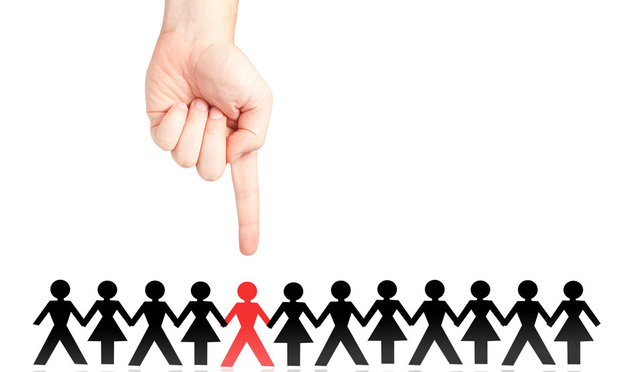Big Law Leaders Say Stigma Comes With Addiction and Mental Health Problems
The challenge for firm management is to increase lawyers' and support staff's comfort with seeking help.
September 24, 2018 at 02:16 PM
7 minute read

In last week's column on the ALM Survey on Mental Health and Substance Abuse, I covered the key takeaways from the responses to the survey, which came from ALM 200 law firm leaders.
In this column, I focus on the specific issue of the stigma surrounding addiction and mental health problems in a law firm setting.
As someone who has researched the issue and written and spoken extensively for years about why it is that lawyers struggle with problematic substance use and mental health distress more than nonlawyers, I believe the culture of the legal profession—often starting in law school—deserves more attention as one of the keys to improving the situation. At the root of that culture are our personal beliefs about substance abuse, addiction and mental health problems—beliefs that are both directly shaped by, and clearly reflected in, prevailing institutional norms about what types of behaviors and conditions are acceptable for someone who calls themselves a lawyer.
Make no mistake, those beliefs are largely problematic.
 The overwhelming majority of respondents to our survey reported a stigma in the legal profession related to addiction to alcohol or drugs (94 percent), depression (81 percent) and anxiety (75 percent). These findings help explain, in part, one of the main takeaways from the 2016 ABA/Hazelden Betty Ford study that I co-authored about the prevalence of substance use and mental health disorders in the legal profession: Lawyers don't seek help for their problems because they fear that someone will find out. Assuming you were an attorney at a large firm, where stigma around behavioral health issues clearly exists, it is perfectly understandable why you would fear others finding out that you had a problem and needed help.
The overwhelming majority of respondents to our survey reported a stigma in the legal profession related to addiction to alcohol or drugs (94 percent), depression (81 percent) and anxiety (75 percent). These findings help explain, in part, one of the main takeaways from the 2016 ABA/Hazelden Betty Ford study that I co-authored about the prevalence of substance use and mental health disorders in the legal profession: Lawyers don't seek help for their problems because they fear that someone will find out. Assuming you were an attorney at a large firm, where stigma around behavioral health issues clearly exists, it is perfectly understandable why you would fear others finding out that you had a problem and needed help.
The challenge for firm management—and for all of us—thus becomes how to reduce the stigma surrounding substance abuse and mental health problems and increase comfort with seeking help. It means being less judgmental, especially around problems that the profession itself often causes.
It's important to note that, while it may be worse among lawyers, stigma around addiction and mental health is not confined to the legal profession, and some aspects of the attitudes we uncovered in Big Law align with research on addiction and mental health stigma in the general population.
For example, our survey suggests that mental health problems are less stigmatized than addiction at these firms, something that is consistent with what we know about attitudes in the broader public. At the same time, however, there seems to be less of a divergence in Big Law than the general population when it comes to the differing levels of stigma between the two conditions.
Put another way, in the general population people are 40 percent more willing to work alongside someone with a mental illness than an addiction, but our survey findings do not suggest a similar disparity among attitudes in law firms. Mental health problems are still highly stigmatized, even if less so than addiction.
Also similar to what has been uncovered in other populations, Big Law seems to take a much harsher view of those with active addictions than those who receive addiction treatment and (presumably) are in recovery. I'll admit here that I was shocked by how little stigma was reported about going to addiction treatment, with 87 percent saying it was not stigmatized.
Come again? This metric would seem to suggest that going to treatment has become highly normalized in Big Law, and it is viewed far more positively than having an addiction and doing nothing about it. It is also a curious finding when compared with the reported stigma about seeing a mental health professional, which is significantly higher. This leads me to believe that Big Law may be less judgmental about and tolerant of temporary and acute interventions, like going to addiction treatment, than it is about ongoing and potentially open-ended support in the form of therapy.
Lastly on this point, if this finding were to be translated into a policy statement or directive from large firms to their lawyers, it would be that, when you have an addiction in Big Law, you would be doing yourself a favor by addressing it, because seeking treatment is viewed far more favorably than untreated addiction. Perhaps if this message were communicated more clearly, regularly and unambiguously, fewer lawyers would fear the consequences of seeking help when needed.
The final and perhaps most important points that I'll make about the survey findings on stigma is that they suggest a misunderstanding about the relationship between alcohol abuse and alcohol addiction, as well as the causes of depression and anxiety.
First on alcohol abuse and addiction: While it is true that most people who occasionally abuse alcohol do not develop an addiction to alcohol, alcohol abuse is almost universally a predicate of alcohol addiction, a condition that has been recognized for half a century by the medical community as a chronic disease. To stigmatize alcohol addiction significantly more than alcohol abuse is analogous to strongly stigmatizing diabetes but not the unhealthy diet which precipitated it.
If firms are going to tolerate (or worse, encourage) unhealthy behaviors around alcohol, it is disingenuous to stigmatize the conditions that may arise as a result. Such attitudes are either hypocritical or demonstrative of a lack of appreciation for the consequences of the work environments firms sometimes create. Perhaps they are both.
Specifically, 78 percent of firms report there is no stigma attached to occasional alcohol abuse, meaning the behavior is clearly well tolerated and highly normalized. Yet, if that abuse turns to addiction, attitudes change quickly. This type of logic isn't the profession's best look. Research has shown that, when it comes to workplace culture, perceived permissive drinking norms are the strongest direct predictor of employee problem drinking, even more so than stress. If lawyers (and leaders) in large firms are going to stigmatize alcohol or other drug addiction, perhaps they should work harder to tackle the permissive drinking norms which can cause it.
Finally, on the causes of depression and anxiety, the survey results again demonstrate hypocrisy, a lack of appreciation for the consequences of the work environments we create or both. None would dispute that a career in Big Law is synonymous with long hours, high stakes and high stress. These are the costs that many lawyers view as outweighed by the numerous benefits of such a career, but they are also all factors which can cause depression and anxiety.
A meaningful exploration of the overlap between lawyering and known risk factors for depression (external stress; internal stress, such as perfectionism; conflict; frustration; feelings of inadequacy; and substance abuse) is beyond the scope of this article, but the point is that the overlap is significant. Same goes for anxiety, itself a frequent co-conspirator of depression. To land on intellectually honest ground, Big Law—and the entire legal profession—should work harder to combat the stigma associated with the mental health problems its demands frequently engender.
Next week's column will take a closer look at the causes of substance abuse and mental health problems in Big Law, and the fourth column in this series will discuss the policies, resources and education that firms are making available to address those issues. I hope to see you back here then!
The ALM Intelligence Compass full survey on the mental health and substance abuse is available here for Compass subscribers. Not a subscriber? Click here.
Patrick Krill is the founder of Krill Strategies, a behavioral health consulting firm focused exclusively on the legal industry. Go to www.prkrill.com for more information.
Read more:
ALM Survey on Mental Health and Substance Abuse: Big Law's Pervasive Problem
Suicide Blamed in Death of DLA Piper Partner
This content has been archived. It is available through our partners, LexisNexis® and Bloomberg Law.
To view this content, please continue to their sites.
Not a Lexis Subscriber?
Subscribe Now
Not a Bloomberg Law Subscriber?
Subscribe Now
NOT FOR REPRINT
© 2025 ALM Global, LLC, All Rights Reserved. Request academic re-use from www.copyright.com. All other uses, submit a request to [email protected]. For more information visit Asset & Logo Licensing.
You Might Like
View All

'That's Disappointing': Only 11% of MDL Appointments Went to Attorneys of Color in 2023
7 minute read

Confusion Over New SEC Cyber Rules Leading Firms to Overstate Attack Readiness
Trending Stories
- 1Lawyers: Meet Your New Partner
- 2What Will It Mean in California if New Federal Anti-SLAPP Legislation Passes?
- 3Longtime AOC Director Glenn Grant to Step Down, Assignment Judge to Take Over
- 4Elon Musk’s Tesla Pay Case Stokes Chatter Between Lawyers and Clients
- 5Courts Demonstrate Growing Willingness to Sanction Courtroom Misuse of AI
Who Got The Work
J. Brugh Lower of Gibbons has entered an appearance for industrial equipment supplier Devco Corporation in a pending trademark infringement lawsuit. The suit, accusing the defendant of selling knock-off Graco products, was filed Dec. 18 in New Jersey District Court by Rivkin Radler on behalf of Graco Inc. and Graco Minnesota. The case, assigned to U.S. District Judge Zahid N. Quraishi, is 3:24-cv-11294, Graco Inc. et al v. Devco Corporation.
Who Got The Work
Rebecca Maller-Stein and Kent A. Yalowitz of Arnold & Porter Kaye Scholer have entered their appearances for Hanaco Venture Capital and its executives, Lior Prosor and David Frankel, in a pending securities lawsuit. The action, filed on Dec. 24 in New York Southern District Court by Zell, Aron & Co. on behalf of Goldeneye Advisors, accuses the defendants of negligently and fraudulently managing the plaintiff's $1 million investment. The case, assigned to U.S. District Judge Vernon S. Broderick, is 1:24-cv-09918, Goldeneye Advisors, LLC v. Hanaco Venture Capital, Ltd. et al.
Who Got The Work
Attorneys from A&O Shearman has stepped in as defense counsel for Toronto-Dominion Bank and other defendants in a pending securities class action. The suit, filed Dec. 11 in New York Southern District Court by Bleichmar Fonti & Auld, accuses the defendants of concealing the bank's 'pervasive' deficiencies in regards to its compliance with the Bank Secrecy Act and the quality of its anti-money laundering controls. The case, assigned to U.S. District Judge Arun Subramanian, is 1:24-cv-09445, Gonzalez v. The Toronto-Dominion Bank et al.
Who Got The Work
Crown Castle International, a Pennsylvania company providing shared communications infrastructure, has turned to Luke D. Wolf of Gordon Rees Scully Mansukhani to fend off a pending breach-of-contract lawsuit. The court action, filed Nov. 25 in Michigan Eastern District Court by Hooper Hathaway PC on behalf of The Town Residences LLC, accuses Crown Castle of failing to transfer approximately $30,000 in utility payments from T-Mobile in breach of a roof-top lease and assignment agreement. The case, assigned to U.S. District Judge Susan K. Declercq, is 2:24-cv-13131, The Town Residences LLC v. T-Mobile US, Inc. et al.
Who Got The Work
Wilfred P. Coronato and Daniel M. Schwartz of McCarter & English have stepped in as defense counsel to Electrolux Home Products Inc. in a pending product liability lawsuit. The court action, filed Nov. 26 in New York Eastern District Court by Poulos Lopiccolo PC and Nagel Rice LLP on behalf of David Stern, alleges that the defendant's refrigerators’ drawers and shelving repeatedly break and fall apart within months after purchase. The case, assigned to U.S. District Judge Joan M. Azrack, is 2:24-cv-08204, Stern v. Electrolux Home Products, Inc.
Featured Firms
Law Offices of Gary Martin Hays & Associates, P.C.
(470) 294-1674
Law Offices of Mark E. Salomone
(857) 444-6468
Smith & Hassler
(713) 739-1250








